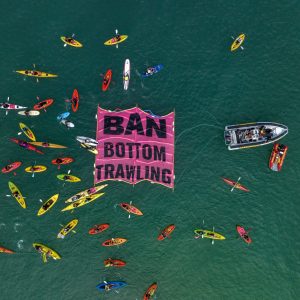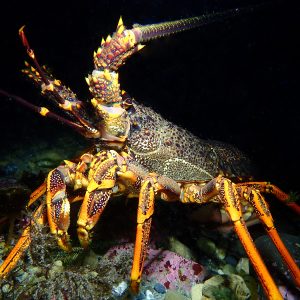Crayfish numbers are so low in the Hauraki Gulf and surrounding northeast coast that University of Auckland researchers are referring to them as “functionally extinct”. This means they are no longer fulfilling their role in the marine ecosystem. This is dire news for both the environment and the public.
In 2014 the New Zealand Sport Fishing Council submitted to the Ministry for Primary Industries that the Area 2 fishery, between Pakiri and East Cape, was the most severely depleted crayfish stock in the country. It has the worst commercial catch rate, at less than half a kilo per potlift.
We urged the Minister to look beyond the National Rock Lobster Management Group’s advice and instead act in a precautionary manner by applying serious cuts to commercial catch limits.
Our submission explained why the crayfish stock level must be doubled to bring the fishery back to a state where it could be better protected from the ravages of human extraction and natural disasters.
The warnings made in our submission were dismissed.

The Minister followed the Management Group’s advice and cut the Total Allowable Commercial Catch by only 15 percent. The TACC reduction from 236 to 200 tonnes condemns recreational and customary fishers to ongoing, poor catch rates and keeps ecosystem productivity suppressed.
Commercial fishers now have to do an incredible 500,000 potlifts to catch just 150,000 kilos of crayfish – i.e. about 300 grams per potlift.
The habitat between East Cape, Coromandel and the remarkable islands of the Hauraki Gulf Marine Park is prime territory for crayfish yet experienced divers are saying they have given up trying to find reasonable size crayfish. Instead they see an increasing number of commercial craypots around the last refuges holding crayfish.
It is unreasonable in every sense that commercial fishers can continue to take up to 200,000 kilos of crayfish per annum while recreational harvest is plummeting.
Our challenge is that the process of gathering data and providing management advice to the Minister is increasingly skewed towards commercial interests. It is indefensible that a handful of quota holders dominate the National Rock Lobster Management Group.
LegaSea supports the call for a Commission of Inquiry into how our fisheries are managed because the quota management system has not delivered the promised riches, innovation or abundant fisheries. Our country is missing out on substantial economic benefits just to protect the status quo. We could do so much better with our national, natural resources.





